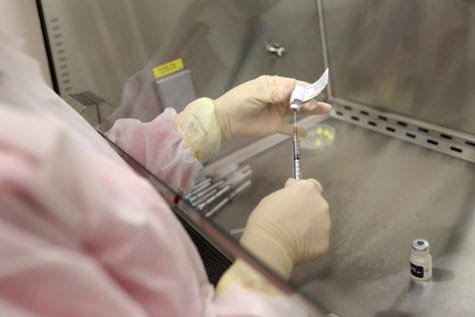Vaccine Reactions
Any time a person takes a medication, even a preventative one such as a vaccine, they can have an adverse reaction. Vaccines are made to activate the immune system and help the immune system become familiar and form protection against a potential threat. Because vaccines activate the immune system, mild reactions are common.
Sometimes a person can have allergic reactions to ingredients of the vaccine. These allergic reactions can be to the active ingredients but are more often to the inactive ingredients (excipients) used to stabilize or produce the vaccine. These allergic reactions can range from mild to severe, including a life-threatening allergic reaction called anaphylaxis.
Sometimes mild reactions resolve without treatment or may improve with antihistamines like diphenhydramine.
Anaphylaxis has some of the same symptoms of mild allergic reactions, but the symptoms are more severe and occur in more than one system. Symptoms of anaphylaxis occur abruptly and require emergency medical treatment. They do not resolve on their own.
Vaccine-related Reactions
| Reaction Type and Severity | Examples of Symptoms | Timing |
| Non-allergic | Rash, fever, chills, irritability, muscle and joint pain, stomach upset, headache, fatigue, pain, redness or swelling at injection site or same arm | Within 1-7 days after vaccination |
| Allergic and mild | Itchy rash such as hives, or flushing, and/or swelling of lips or eyes or extremities | Within 0-72 hours after vaccination |
| Anaphylaxis (allergic and severe) | Symptoms of one or more systems: skin symptoms (itching, hives, flushing or facial swelling), breathing problems (shortness of breath, wheezing, cough), symptoms due to low blood pressure (confusion, disorientation, dizziness, lightheadedness, weakness, or fast heart rate), or gastrointestinal symptoms (nausea, vomiting, stomach cramps, or diarrhea). | Occur abruptly, from 5 minutes to within 2 hours of vaccination |




